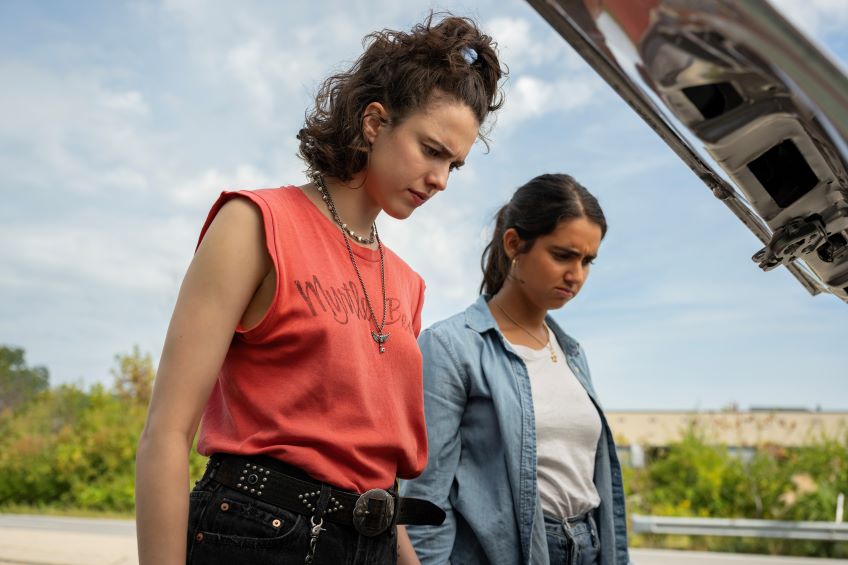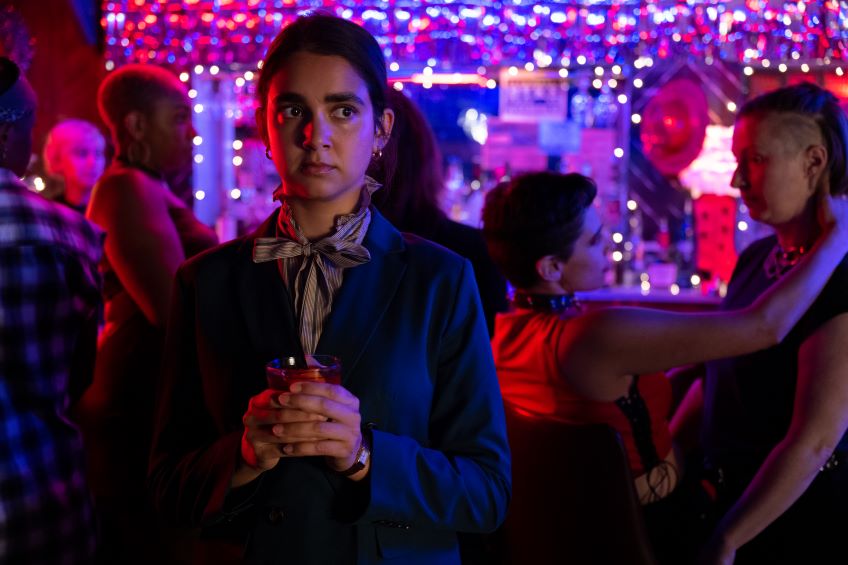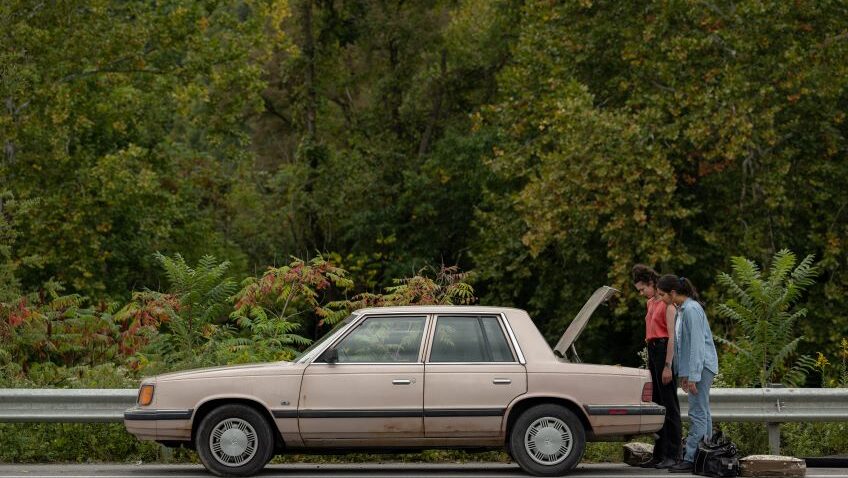Joyce Glasser reviews Drive-Away Dolls (March 15, 2024) Cert 15, 84 mins. in cinemas
After making twenty films together since 1984 in one of the most successful partnerships in film history, Joel and Ethan Coen went their separate ways. In 2021 Joel delivered a brilliant 2021 film adaptation of Shakespeare’s Macbeth co-starring his wife, Frances McDormand, which he wrote, produced, directed and edited. Ethan directed, but did not write, the 2022 documentary Jerry Lee Lewis: Trouble in Mind, and now we have Drive-Away Dolls, a comedy-caper-road movie, made in a new partnership with his wife, Tricia Cooke.
The intention was to make a raunchy, sexy, fun and funny throwback to the late 1960s and 1970s – a film that didn’t take itself seriously. To say that Drive-Away Dolls is lightweight is an understatement. Whether it’s fun let alone funny will depend on individual senses of humour. If you are 12 (and the film has a 15 certificate) you might find the premise of a McGuffin suitcase stuffed with phallic moulds taken from the penis of a corrupt Senator funny. Or you might laugh out loud at the idea that two lesbians – the film was originally entitled Drive-Away Dykes – become unwittingly mixed up with straight as nails gangers who are after these phalluses.
Jamie (Margaret Qualley, Once upon a Time in Hollywood) and Marian (Geraldine Viswanathan, Cat Person, The Beanie Bubble) are friends through Philadelphia lesbian circles, although they are so different that “friends” is pushing it. Jamie is razer-sharp bright, freewheeling, uninhibited, promiscuous and gregarious, while Marian who is just about a leave a 9 to 5 office job, is a buttoned up, withdrawn, bullied, book-worm who hasn’t had a sexual relationship since she broke up with her steady partner.

When Jamie’s partner, Sukie (Bean Feinstein, The Humans, Lady Bird, Book Smart), a police officer, kicks her out for infidelity, Marian reluctantly offers Jamie a place to stay. Marian parts company with her job and Jamie proposes visiting her aunt in Tallahassee, persuading Marian to accompany her on a fun-packed sight-seeing route, the sights being famous lesbian bars off the main freeway.
To avoid car rental fees, for transportation they use a “drive-away” agency, although Jamie is relaxed about the due date for the car. Echoing the tradition of self-consciously outrageous B-movie makers like Russ Meyer and John Waters, the girls drive away with a car intended for two bungling gangsters (Joey Slotnick and CJ Wilson) answering to “The Chief” (Colman Domingo, recently seen in The Colour Purple). The McGuffin is the suitcase in the boot full of phalluses, whose significance is revealed toward the end of the film.
Coen Brothers fans will start to identify Ethan’s handywork in the zany plotting from Raising Arizona, Burn After Reading and The Big Lebowski, films that needed Joel’s balancing act not to run riot. Cooke is Ethan’s first co-writer since he and Joel split and, as it’s set in the 1990s (mobile phones would have changed the plot) she might have wanted to mark the new partnership with something personal from the lesbian scene thirty years ago.
In the production notes Coen and Cooke point out that ‘it was important to [them] to tell a story with highly visible queer characters, without having their sexuality be the whole point of the film.’ Fair enough, but it’s obvious the phallic motif wouldn’t work with a heterosexual couple or even two straight men.
And it’s an odd statement, too, when, once they are on the road, Jamie brings a woman she has picked up in a bar back to the motel where Mirian is in bed reading Henry James, The Europeans. You can’t imagine Mel Gibson bringing home another woman to the motel where a disgruntled Goldie Hawn is holed up in the rom-com, crime-caper, road movie Bird on a Wire.

And it’s an odd statement when on the way to Tallahassee the two protagonists single out lesbian bars and on one outing, end up making out with the teammates of a women’s soccer team – as though all women in sports’ teams are lesbians.
Even at 84 minutes the plot, though well-paced with a punchy soundtrack, is paper thin, and the characters are established in the first two minutes of their introductory scenes. With an intentionally derivative plot that contains a McGuffin that no one can take seriously, there wouldn’t be much of a movie at all without the sapphic focus.
Significantly, when it is Marian’s turn to kiss Jamie in the soccer team scene, Marian is mortified and tries in vain to resist her true desires. So this comedy-caper-road-movie is also a same-sex-rom-com, and insofar as there is a point to it, that must be the point.




